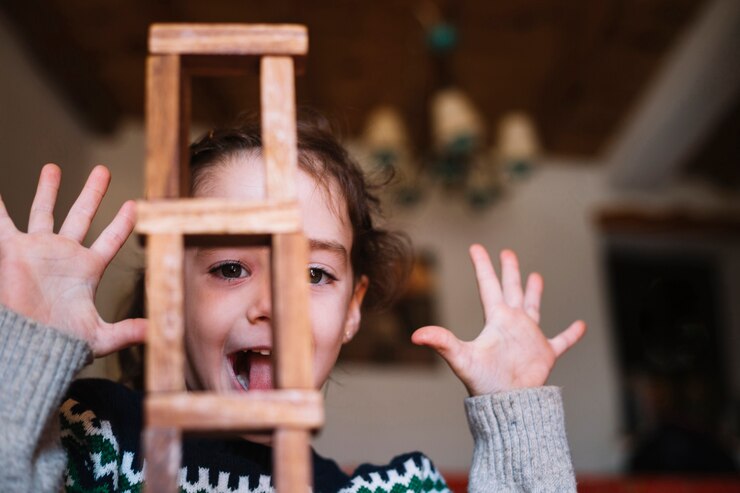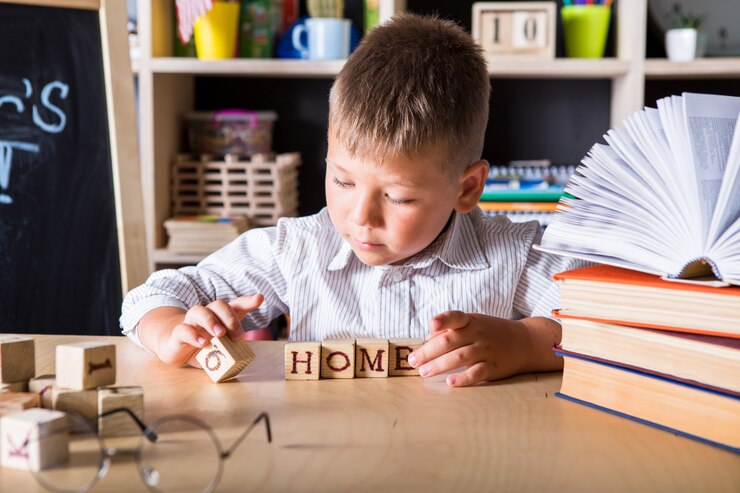What is the Philosophy of Montessori Education. The Philosophy of Montessori schooling machine, advanced by using Dr. Maria Montessori inside the early twentieth century, is an outstanding educational method rooted in the perception that children are clearly ACTIVE and successful novices. This philosophy emphasizes self-directed interest, palms-on analyzing, and collaborative play. In Montessori classrooms, youngsters make creative alternatives in their gaining knowledge of, on the equal time as the lecture room and the teacher offer age-appropriate sports to manual the technique. This instructional philosophy has had a profound effect on early life education and keeps persuading instructional practices worldwide.
Core Principles of Montessori Philosophy of education
1)Respect for the Child about Montessori education
At the coronary heart of Philosophy of Montessori Education is a profound admiration for the kid as a man or woman. Montessori educators view children as evidently eager for information and capable of beginning gaining knowledge in a supportive, thoughtfully organized studying environment. This apprehend is manifested in different approaches:
- Autonomy and Independence: Children are recommended to do subjects for themselves. This can range from simple responsibilities like tying their shoes to more complicated sports activities consisting of solving mathematical troubles or accomplishing medical experiments.
- Choice and Responsibility: Children are given alternatives to their sports, fostering an enjoyment of RESTRICTIONS and ownership over their analyzing system
2) Prepared Environment about Montessori education
The studying environment in Montessori education is meticulously organized to provide useful resources for the child’s getting to know and improvement. The surroundings is characterized via:
- Order and Structure: The study room is designed to be orderly and aesthetically appropriate, selling a sense of calm and cognizance. Materials are arranged in a way that is available to youngsters, letting them find and go back materials independently.
- Learning Materials: Montessori substances are cautiously designed to aid unique getting to know goals. These materials are regularly self-correcting, enabling children to learn via exploration and discovery without constant person intervention.
3) Mixed-Age Classrooms
Philosophy of Montessori Education lecture rooms commonly embody mixed-age groups, typically spanning 3 years. This structure helps:
- Peer Learning: Older kids often tackle mentoring roles, supporting more younger kids and reinforcing their personal records in the technique. Younger children benefit from looking at and interacting with their older peers.
- Continuity: Children remain with the equal instructor for numerous years, fostering deep relationships and a strong experience of network inside the lecture room.
4)Child-Centered
Learning The Montessori approach is toddler-targeted instead of instructor-targeted. Teachers act as guides or facilitators in place of conventional instructors. This approach consists of:
- Observation: Teachers have a look at every infant to apprehend their hobbies, strengths, and areas for development. These facts publish the education of the environment and the choice of substances.
- Individualized Learning: Each infant is allowed to develop at their non-public pace, with instructions tailored to their man or woman goals and pursuits.

Montessori Curriculum and Materials
The Philosophy of Montessori Education curriculum is huge and interdisciplinary, designed to cultivate the complete child. It encompasses numerous key regions:
- Practical Life Skills Practical life sports are foundational in Montessori education, supporting children to develop coordination, attention, independence, and an experience of order. These activities frequently include real-life responsibilities together with pouring, spooning, buttoning, and cleaning. Through those obligations, children discover ways to deal with themselves and their environment, fostering self-sufficiency and self guarantee.
- Sensorial Activities
Sensorial sports are designed to assist youngsters refine their senses and understand the physical international. These sports have interaction with youngsters in exploring textures, sounds, colorations, and shapes, supporting inside the development of statement and assessment capabilities. The Montessori substances for sensorial studying are specific and systematic, offering an established method to sensory education.
- Language
Language training in Montessori starts with spoken language and often progresses to writing and studying. Montessori school rooms frequently use phonetic tactics for coaching, analyzing and writing, allowing kids to recognize the connection between sounds and letters. Language sports activities additionally encompass storytelling, vocabulary improvement, and grammar sports, aiming to develop comprehensive language talents.
- Mathematics
Montessori arithmetic substances are designed to make abstract ideas concrete and tangible. Children start with palms-on sports activities that introduce simple mathematical ideas which include counting, region rate, and operations. These foundational reviews put together kids for extra complex mathematical standards and trouble-solving.
- Cultural Studies Cultural studies in Montessori schooling embody geography, records, science, artwork, and track. These topics are covered to offer a holistic knowledge of the sector. Montessori cultural materials embody globes, maps, timelines, and medical tools, permitting youngsters to discover and discover the wonders of the herbal and cultural world.
The Role of the Montessori Teacher
The characteristic of the Montessori teacher, often called a “manual,” is different from that of a conventional trainer. Montessori publications are knowledgeable to have a look at and assist in choice to direct and manage. Their responsibilities include:
- Observation Montessori publications spend notable time watching kids to recognize their developmental needs and pursuits. This remark informs the guidance of the environment and the choice of materials.
Preparation of the Environment
Philosophy of Montessori Education The guide is accountable for growing and maintaining surroundings that is conducive to studying. This includes organizing substances, making sure the study room is orderly, and introducing new activities as children are prepared for them.
- Facilitation of Learning Guides facilitate getting to know via imparting appropriate substances and activities, providing slight guidance, and encouraging exploration and discovery. They strive to intervene as low as feasible, allowing children to study through their private reviews.
- Support and Encouragement Montessori guides offer assistance and encouragement, helping kids build self perception and resilience. They recognize and have a good time every toddler’s progress and achievements, fostering a splendid and nurturing analyzing environment.
Benefits of Montessori Education
Philosophy of Montessori Education schooling gives numerous blessings, contributing to the development of nicely rounded, capable humans. Some of the key benefits consist of:
- Independence and Self-Motivation
- Philosophy of Montessori Education fosters independence and self-motivation. Children discover ways to take initiative, make alternatives, and pursue their interests. This autonomy builds self-belief and a feel of duty.
- Academic Achievement
Research has proven that Montessori college students frequently perform nicely academically. The hands-on, experiential approach to studying allows children to understand and maintain standards extra efficiently.
Social and Emotional Development
Philosophy of Montessori Education schooling allows social and emotional improvement through promoting collaboration, admire, and empathy. The combined-age lecture room environment encourages youngsters to develop sturdy interpersonal talents and construct huge relationships.
Lifelong Love of Learning Montessori training nurtures a lifelong love of gaining knowledge of. By permitting youngsters to conform with their pastimes and discover at their very personal tempo, Montessori instils an experience of interest and a passion for discovery that could close a lifetime.
Challenges and Criticisms
While the Philosophy of Montessori Education has many strengths, it is not without its traumatic conditions and criticisms. Some of the not unusual criticisms consist of:
- Accessibility and Inclusivity Montessori schooling can be highly-priced, making it much less to be had to families with confined financial sources. Additionally, a few critics argue that Montessori schools won’t be accurately equipped to assist children with special goals.
- Teacher Training and Quality The splendid Montessori training can vary significantly counting on the education and level of the lecturers. Ensuring steady, awesome Montessori education and workout is critical for retaining the integrity of the philosophy.
Philosophy of Montessori Education Adaptability to Standardized Testing and Curriculum Montessori schooling’s emphasis on individualized analyzing and the absence of conventional grading systems could make it tough to align with standardized trying out and curriculum necessities. This misalignment can pose problems for college kids transitioning among Montessori and traditional instructional settings.
FAQS
Q1. What is the center philosophy of Montessori education?
The core philosophy of Montessori training is based on the perception that kids are certainly eager for expertise and capable of beginning mastering in a supportive, thoughtfully organized studying environment. It emphasizes fingers-on, self-paced, collaborative, and happy learning.
Q2. How does the Montessori technique fluctuate from conventional training?
The Montessori technique differs from conventional schooling in numerous key methods. It promotes multi-age classrooms, encourages self-directed studying, and makes use of specially designed getting to know materials. Unlike traditional strategies that focus on teacher-led education, Montessori encourages students to take the lead of their own learning.
Q3. What position do instructors play in a Montessori lecture room?
In a Montessori lecture room, teachers act as guides or facilitators in place of traditional teachers. They observe college students to apprehend their man or woman needs and pursuits and provide suitable sources and guides to help them explore and examine independently.
Q4. How are Montessori school rooms established?
Montessori classrooms are designed to be open and available, with learning substances organized by problem location and within easy attain of the kids. The environment is ready to encourage exploration and discovery, with toddler-sized furnishings and tools to foster independence and self-confidence.
Q5. What are the benefits of Montessori training for youngsters?
Philosophy of Montessori Education schooling blessings kids by means of fostering a love of mastering, growing independence, and encouraging essential thinking. It enables children to develop robust social skills, willpower, and self assurance. The method is adapted to character getting to know paces and styles, allowing youngsters to fully draw close concepts earlier than moving on.
Conclusion
The Philosophy of Montessori Education of schooling is a distinct and impactful technique that emphasizes respect for the kid, an organized environment, blended-age lecture rooms, and toddler-centered getting to know. With its awareness on palms-on, experiential reading and the development of the entire infant, Montessori education offers numerous advantages, which includes fostering independence, educational success, social and emotional development, and a lifelong love of getting to know.
While there are demanding situations and criticisms associated with Montessori education, its enduring effect on an achievement shows its price in nurturing successful, curious, and compassionate people. As the instructional landscape continues to conform, the thoughts of Montessori education remain relevant and galvanizing, presenting a vision of training that respects and empowers every baby’s particular capability.
